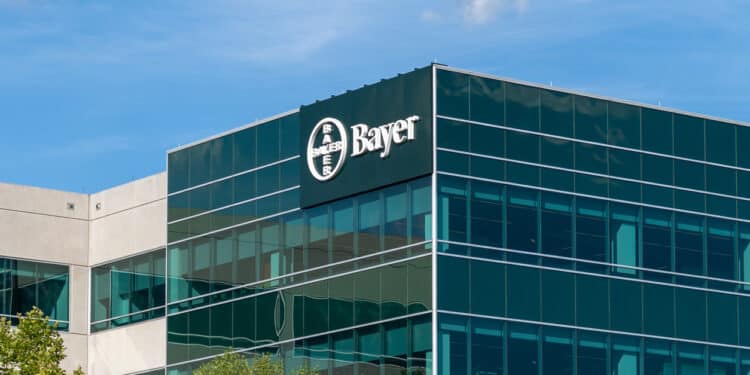Pharmaceutical manufacturer Bayer Corporation and its related entities will pay $40 million to resolve allegations that it violated the False Claims Act. The case stemmed from two qui tam, or whistleblower, lawsuits filed by Laurie Simpson, a former Bayer employee. For her role as a whistleblower in the case, Simpson will receive $11 million.
Simpson first filed a qui tam complaint in the U.S. District Court for the District of New Jersey, according to the settlement agreement. She subsequently filed “nine amended complaints in the New Jersey Action, with the operative, Tenth Amended Complaint filed on April 14, 2015.” The 2015 complaint included claims brought on behalf of the U.S., 20 states, and the District of Columbia.
In the lawsuit filed in the District of New Jersey, “Simpson alleged that Bayer paid kickbacks to hospitals and physicians to induce them to utilize the drugs Trasylol and Avelox, and also marketed these drugs for off-label uses that were not reasonable and necessary,” according to the U.S. Department of Justice (DOJ) press release. The press release states that “Trasylol is a drug used to control bleeding in certain heart surgeries” and “Avelox is an antibiotic approved to treat certain strains of bacteria.”
Simpson also alleged “that Bayer downplayed the safety risks of Trasylol.” The lawsuit alleged that because of this activity, “Bayer caused the submission of false claims to the Medicare and Medicaid Programs and violated the laws of 20 states and the District of Columbia.”
In a second lawsuit that was transferred to the District of Minnesota, Simpson alleged that Bayer “knew about, but downplayed” the dangers of Baycol, the company’s statin drug. Allegedly, the drug had risks of causing rhabdomyolysis. “The lawsuit further alleged that Bayer misrepresented the efficacy of Baycol when compared to other statins and fraudulently induced the Defense Logistics Agency to renew certain contracts relating to Baycol. Subsequently, Trasylol and Baycol were withdrawn from the market for safety reasons,” the press release states.
The qui tam provisions of the False Claims Act enable private citizens to file lawsuits on behalf of the government if they know of an individual or company defrauding the government. Qui tam whistleblowers are eligible to receive between 15 and 30% of the government’s recovery, if one occurs. In this case, the U.S. government intervened in the whistleblower’s case and conducted the investigation.
U.S. Attorney Philip R. Sellinger for the District of New Jersey said in the press release that Bayer “engaged in a series of unlawful acts, including paying kickbacks to doctors and hospitals, marketing them off-label, and downplaying their safety risks.”
Principal Deputy Assistant Attorney General Brian M. Boynton, head of the DOJ’s civil division, praised Simpson’s whistleblowing efforts, stating: “Simpson diligently pursued this matter for almost two decades…Today’s recovery highlights the critical role that whistleblowers play in the effective use of the False Claims Act to combat fraud in federal healthcare programs.”
The Importance of Healthcare Whistleblowers
Whistleblowers are key to uncovering corruption and misconduct in the healthcare industry: fraudulent schemes can be particularly harmful to patients and erode trust in the medical system. In Fiscal Year 2021, qui tam whistleblowers helped the DOJ recover $1.6 billion in settlements. The DOJ highlighted health care fraud as “the leading source of the department’s False Claims Act settlements and judgments.”
Read the DOJ press release here.




